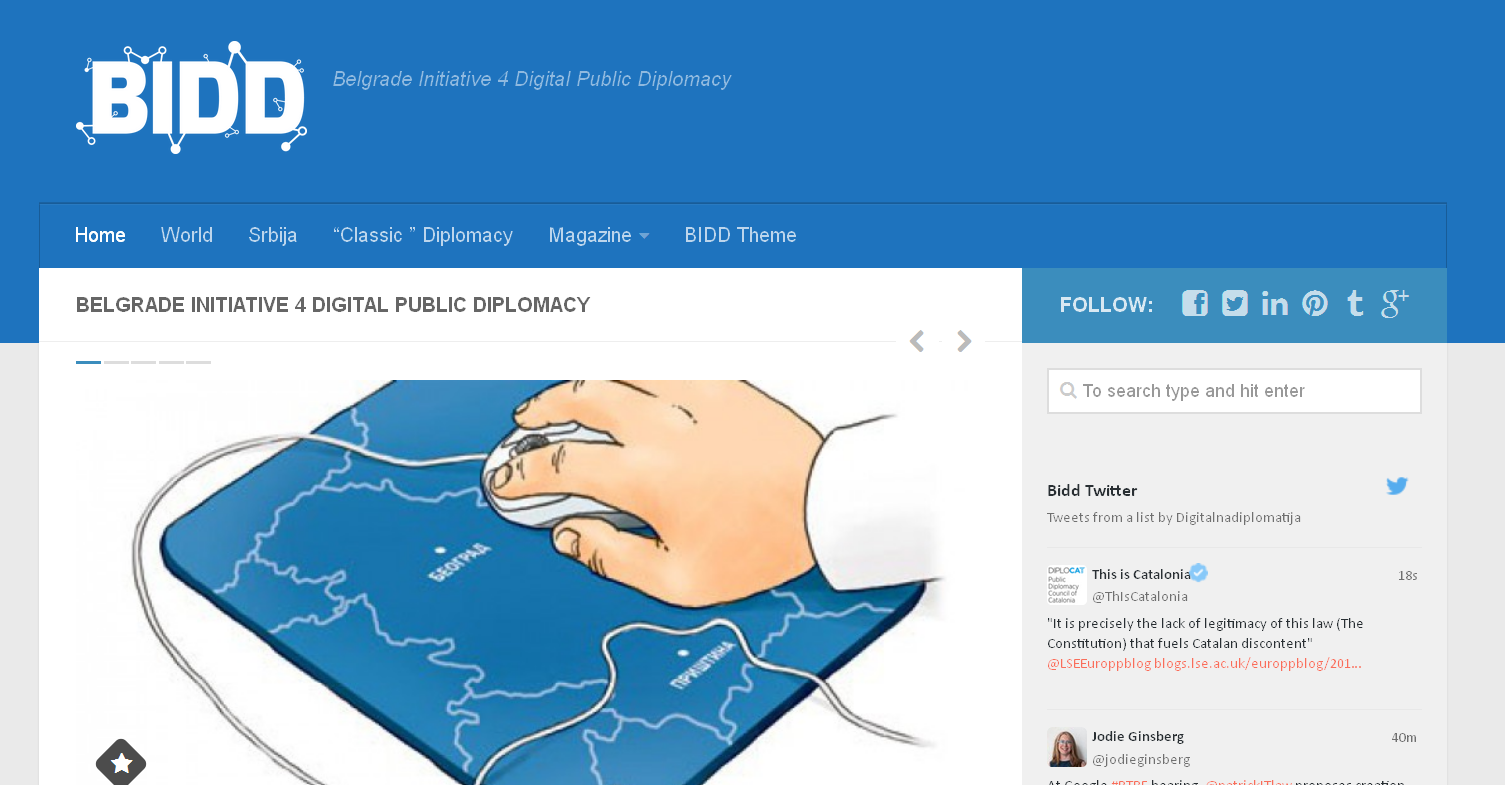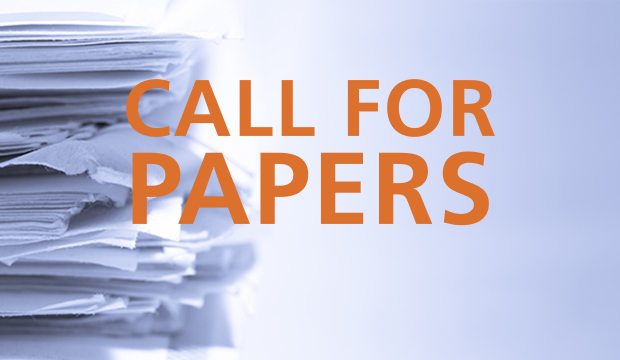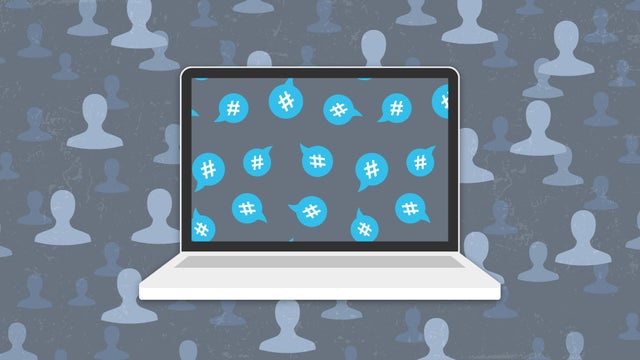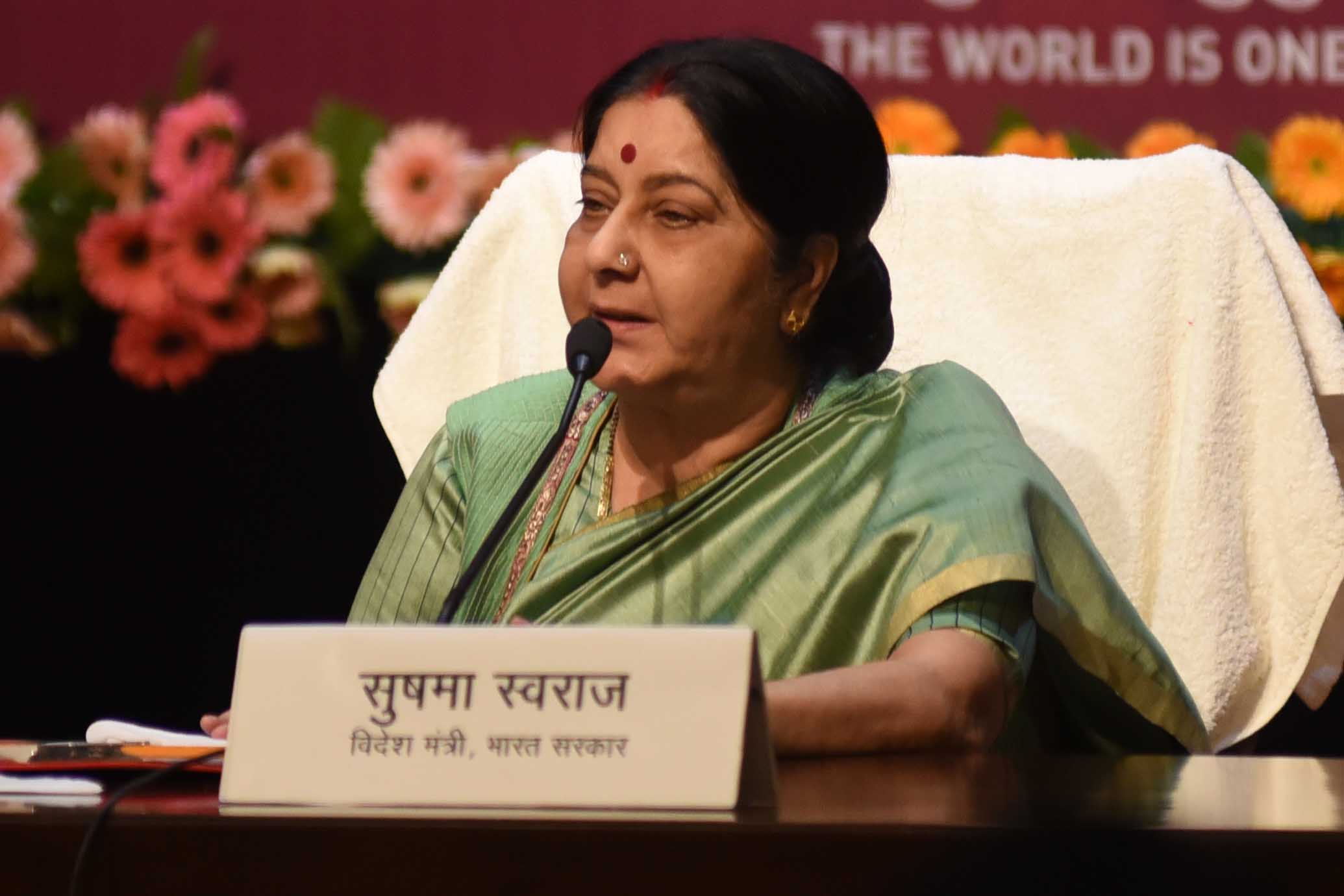DRŽAVNI SLUŽBENIK: KRIZNO KOMUNICIRANJE U JAVNOJ UPRAVI
Mnogi filmovi i serije od „Građanina Kejna“ do „House of Cards“ bavili su se političarima i javnim službenicima i njihovim odnosom prema medijima i...
ISTINE I ZABLUDE O „TVITER ZAJEDNICI“
ISTINE I ZABLUDE O „TVITER ZAJEDNICI“, NJENIM VOĐAMA I NJIHOVIM PODANICIMA
Već nešto više od deset godina Srbija je lider u regionu kada su u...
Šta je digitalna diplomatija i kako se može primeniti u Srbiji
Za manje upućene, digitalna diplomatija predstavlja korišćenje Internet servisa, online medija, računara i mobilnih uređaja u cilju šire komunikacije sa građanima, kao i promocije...
RASPRAVA IZMEĐU AMBASADORA SAD I RUSIJE ZAPALILA TVITER: Spor Bocan-Harčenka i Skata da li...
Na društvenoj mreži Tviter razvila se polemika između ambasadora Rusije i Amerike u Srbiji, Aleksandra Bocana Harčenka i Kajla Skata, kao i predstavnika iz ambasade Republike Poljske.
Call for Papers: The Digitalization of Diplomacy in South-East Asia (Special Issue)
Call for Papers
Journal of Contemporary Eastern Asia (JCEA), Vol. 19, No 1 – Summer 2020
The Digitalization of Diplomacy in South-East Asia: A Special Issue
Invited editors: Ilan Manor, University of Oxford (manor.ilan@gmail.com)
Craig Hayden, Marine Corps University
Hyunjin Seo, University of Kansas
In recent years scholars have paid growing attention to the digitalization of diplomacy. Studies have examined the use of digital platfroms and digital technologies in the realms of public diplomacy, consular diplomacy, multi-lateral negotiations and security negotiations. However, the current digital diplomacy research corpus suffers from three limitations. First, the majority of digital diplomacy studies have analyzed how diplomats use digital technologies as opposed to why these have been so eagerly adopted by diplomatic institutions. Subsequently, few studies have offered a broad theoretical prism through which the digitalization of diplomacy may be conceptualized and investiga..
DOJ should take action against China’s Twitter propaganda
Over the last few years, Chinese state media organs have accelerated a campaign to leverage U.S. social media platforms – namely, Twitter – to promote the Chinese Communist Party’s (CCP) narrative on several issues.
Facebook i Twitter blokirali botove u službi vlasti
Facebook i Twitter su blokirali naloge za koje smatraju da se bave dezinformisanjem javnosti. Ova vest predstavlja veliki udarac za botovsku industriju gde se svakodnevno proizvode milioni lažnih mišljenja “običnih” građana.
How we organise monthly mental wellbeing Q&As for GDS staff
The mental health network at GDS exists to ensure our colleagues have the mental health support and information they need.
We do this in a variety of different ways. For example, we send out a regular newsletter, we have a dedicated Slack channel for discussing mental health-related topics, we provide mental health first aid, and host speakers and events.
We also hold regular anonymous peer-led mental wellbeing Q&As. In this post, I will explain how we organise them and share some tips on how to ensure they’re a success.
What we do to set up our Q&As
The Q&As take place on the morning of the last Friday of each month. We hold them on the online platform Slack, which everyone at GDS can access.
First, we field questions using a Google form, which staff can complete anonymously.
Staff can also use the form to submit answers anonymously. Our most recent Q&A had 10 anonymous questions and around 50 replies from around 20 members of staff.
It takes one person about 3 hours in total ..
Mastering digital diplomacy: Sushma Swaraj, the ‘crusading Supermom of State’
In a rare feat for a legislator, Swaraj commanded the respect of people from all walks of life and across the aisle.
Narrative Alignment as Public Diplomacy Evaluation
Despite the emergence of new technologies the task of evaluating public diplomacy activities remains a daunting one. While scholars and practitioners have offered numerous definitions for the term public diplomacy, they have yet to agree upon a method for measuring the impact of public diplomacy activities.
Some have suggested that public diplomacy is a means towards creating a receptive environment for one’s foreign policy. This definition suggests that one has to gauge the environment in which public diplomacy is practiced and track changes within this environment. But what is this “environment”? Are there several actors comprising this environment? If so, which actors should be monitored? And how can this monitoring take place?
Other definitions state that public diplomacy is a tool for winning over the “hearts and minds” of foreign populations and swaying foreign public opinion in one’s favor. Yet how can one assess his ability to win over hearts and minds? Should he preform a lo..














